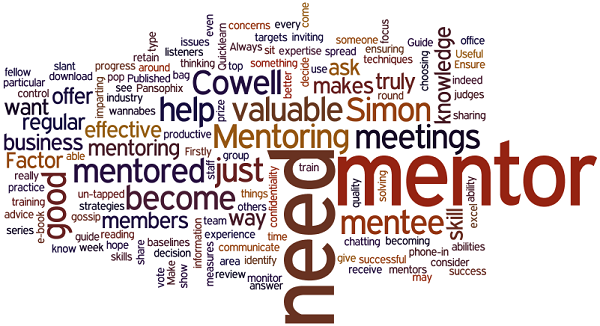ATD Blog
Continuing the Conversation: Mentoring Models and the Importance of Ongoing Support for Mentoring Programs
Tue Jul 01 2014

**Congratulations, Debra Luckett and Marlene Steele! You’re the winners of the Creating a Mentoring Program book giveaway! And thank you to everyone who commented below. We'd like to offer you 15% off of the print and e-book. From today through July 30, use the code MENTOR15 at checkout to redeem your discounted copy!
**
In May, we presented a webinar for ATD on the Mentoring Partnership Model. There were several questions that stood out for me. Two of those questions were “how is this different from reverse mentoring_”_ and “could we continue this conversation?”
Rather than just touch on the one form of mentoring, we thought this might be the time to review several delivery methods. There are several forms of mentoring.
Traditional mentoring: senior person to a younger or more novice person. The senior is guiding the younger person sharing their knowledge or expertise. The senior person may get a sense of being able to give back and share their legacy.
Reverse mentoring: younger person to more senior person. The younger person guides a more senior person through newer information, often technology.
Peer mentoring: a little older youth guiding a younger youth or one peer guiding another peer. In the adult peer form, it can be one peer guiding another through cross-training or perhaps one family mentoring another family.
E-mentoring: same model as traditional mentoring but delivered online via email or other electronic modes.
Team mentoring: several older adults mentoring working with groups of youth.
Group mentoring: one senior person works with a group of junior people.
What do all of these models have in common? All in one form or another are one-way opportunities to develop an individual or group. One person is giving and the other receiving.
The Mentoring Partnership Model is based on mutual two-way learning. Senior individuals, often Baby-boomers, also want the chance to learn new information. Providing them with the opportunity to continue growing can keep them engaged and productive. More junior folks bring new and innovative information. Giving them the possibility to share their knowledge recognizes their value and what they bring to the table. Two-way mentoring is a win for both sides of a partnership and for the organization.
The other question was “how do we keep this conversation going?” One way is make this blog thread an ongoing discussion. We can pose questions, ideas, share things that have worked well and those that didn’t. Perhaps, even build a community of those who direct, manage, or lead mentoring programs.
Coordinating or facilitating a successful program often generates questions for the coordinator that there doesn’t seem to be anyone around to answer or even discuss the question with can be somewhat frustrating and lonely. Understanding the value of mentoring beyond the surface often takes someone on the front line, who sees and experiences the growth in folks involved in a mentoring relationship.
We want to invite you to answer the following question: What has been your experience with a mentoring program?
For a chance to win a copy of Creating a Mentoring Program, answer the above question in the comments section below. Your comment must be received by 5 p.m. EDT on Friday, July 11. If you prefer to email your response, please send it to [email protected]. After reviewing the comments and emails received, we will select two winners and announce them in this post by Wednesday, July 16.
